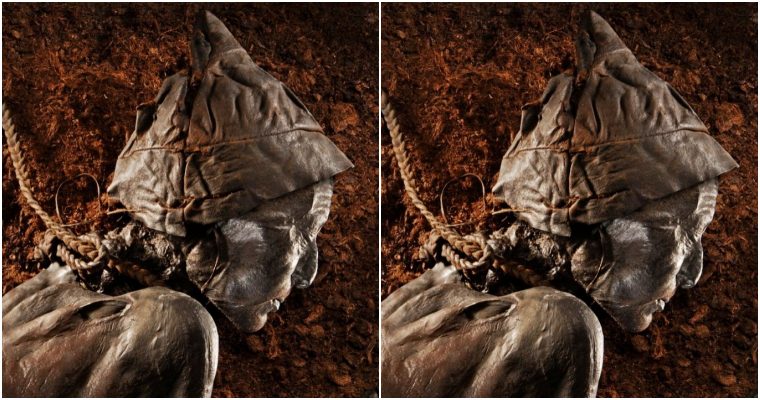The picture of a sheep showing gratitude to a dog that has just saved its entire flock from a wolf attack has recently gone viral on social media. But hey, what breed of dog is capable of doing that?

Viral image of a sheep comforting a Kangal after it protected their herd from wolves. Image credits: Reddit
Wolves, the largest canine species, are considered to be the apex predators of their natural habitats, whether in Eurasia or North-America. With no natural enemies, they prey on most mammals without hesitation, and livestock is no exception. However, they do have some domestic enemies.
Back in 2019, somewhere in the Caucasus Mountains a heroic shepherd dog protected its flock against a pack of wolves. After the dog chased the wolves away, a sheep was seen comforting their savior, and the picture of the touching scene has since gone viral. But what kind of dog is it, and what else do we know about the breed?

Kangal, the ultimate guard dog. Image source: Twitter
The dog breed in question is the mighty Kangal. It’s no surprise if you haven’t heard about this breed yet; they originated from Turkey and are mostly found in Central-Asia. Turkey has also restricted the export of Kangals to preserve the breed’s pedigree, so they are quite rare in the United States.
They are typically used to guard and protect herds that graze freely in the rugged mountainous terrain, where wolves and other predators are common. There is also a certain attachment between a Kangal and its flock, as it not only herds the animals but also lives among them. Thus, the livestock fully recognize the protection the dog offers. This could explain why the sheep in the picture cares so much about their guardian.

Kangals are accustomed to rough environments. Image credits: stejoe/CCsearch CC BY-NC 2.0
These working dogs can grow up to 85 centimeters (33 inches) in height and weigh an astonishing 65 kgs (143 lbs). Despite their size, Kangals have a muscular body with great agility and speed, making them highly effective against predators.
They also hold the record for the strongest bite force among dogs; on average, these dogs have a bite force of 743 PSI (pounds per square inch). In comparison, pit bulls have a bite force of 235 PSI, and grizzly bears possess a bite force of 975 PSI.

Image source: Imgur
Because they live in a hostile environment, the Kangal has developed exceptional characteristics that have evolved over several generations. They are extremely brave and strong-willed, which is coupled with a fighting spirit. They will defend their flocks even at the expense of their lives.
In addition to their great courage, Kangals have elastic skin on some parts of their body, which can absorb the power of some bites, reducing pain, and giving them a crucial advantage during fights. Also, the spiked collar which you can see the dogs wearing in some of the pictures is not there for no reason. Wolves and other wild animals who hunt livestock often bite the neck, and spiked collars can help protect dogs when they fight against predators.

Spiked collars can be really helpful in a fight against wolves. Image credits: Onur1991/CCsearch CC BY-SA 3.0
That said, when they are off-duty these dogs are very calm and have a predictable temperament. They tend to be affectionate and kind with the humans they trust, and you’d also find that they are naturally gentle when it comes to children. This is because the Kangal considers the humans it lives with as part of its pack, and their instincts will tell them not to be aggressive or hostile around us.
So, these Turkish shepherd dogs are exceptionally loyal and devoted to their owners, and they also protect what’s important to them. When properly trained, Kangals are smart enough to know when to calm down, threaten an enemy, or attack a predator, a remarkable trait.
However, these animals are not for everyone. People who own them usually live in dangerous areas where wolves and bears are a real threat to them and their livestock. Therefore, the Kangal has evolved in a way to fulfill the purpose of livestock protector. Not a dog that can be cooped up inside, or just be let outside in a yard with no purpose. Without proper exercise and without their skills being put into use, they can become bored and anxious, which leads to destructive tendencies and excessive barking.

Kangals develop a sense of independence at a very young age. Image credits: My Sirapinar/CCsearch CC BY-NC-SA 2.0
In the right hands and environment, these strong-willed and independent dogs can become gentle guardians, who love their ‘flock’ more than anything.
Their owners must be aware of their specific needs though, because this unique breed is not your ordinary big dog.
source: earthlymission.com








